Book Recommendations
The Feeling Good Handbook Dr. David Burns |
|
This is a good introduction to cognitive therapy. Dr. Burns offers many practical techniques to help you lift yourself out of a depression, to reduce your anxiety and to strengthen your communication skills. Overall an excellent book for learning clear thinking methods. However, I disagree with the author on some of his underlying premises and I don't recommend his book Ten Days To Self Esteem. |
|
| purchase now | |
Managing Your Mind: The Mental Fitness Guide Butler and Hope |
|
Aside from the philosophical junkyard of chapters 1-3, this book is chock full of simple good tips (e.g., good study skills, identifying and pursuing healthy goals to bring you pleasure, keeping friendships fair) with a lovely undercurrent of egoism despite occasional nosedives. The mix of good and bad ideas makes me wonder if one author was philosophically healthier than the other. This book offers valuable thinking skills and is a good one to keep in your reference library. |
|
| purchase now | |
Getting Through to People - The techniques of persuasion...how to break through the mental and emotional barriers between people Jesse S. Nirenberg, Ph.D. |
|
A timeless gem that is well worth reading. He has an extrodinary understanding of how to communicate to get ideas across, how to listen with the purpose of understanding another person, how to deal with heated emotions in conversations, how to detect and deal with another person's irrationality, how to hear mixed contexts in conversation and much more. |
|
| purchase now | |
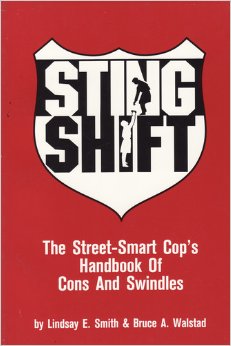 |
Sting Shift: The Street-Smart Cop's Handbook of Cons and Swindles Smith and Walstad |
Arm yourself against scams, psychics and swindlers of all kinds. Written as an aid for law enforcement. |
|
| purchase now | |
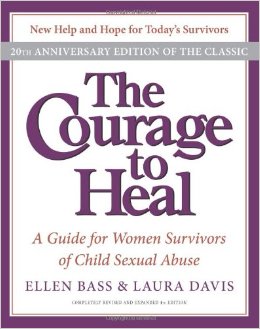 |
The Courage to Heal A Guide for Women Survivors of Child Sexual Abuse Ellen Bass and Laura Davis |
If you've had the nightmarish experience of having been sexually abused and you don't know how to deal with the multiple levels of disturbed feelings you have, this book offers many excellent suggestions. These include recognizing that you can heal, that you don't need to remain a victim for life, recognizing the damage that the abuse has caused in your life, understanding what you did to cope with the abuse, learning how to break the silence, attributing blame accurately, dealing with your feelings of anger, appropriately rebuilding trust (in yourself and with others), and gaining closure and moving on. Although there are sections with which I strongly disagree (e.g., on having a sense of power greater than yourself), this book offers excellent suggestions, examples and exercises. It helps you learn to change "internalized messages" such as "I hate myself" and "What I want doesn't count." The authors encourage learning to live for yourself: "If you are still trying to please others, if you are still hoping for someone else's approval, then you will never be smart enough, thin enough, successful enough... Try putting aside your father's expectations. Stop comparing yourself to your friend. Think about what you like to do, whom you like to spend time with, what you find worthwhile." If you've been seriously traumatized, I recommend using this book in conjunction with a counselor. |
|
| purchase now | |
Mind over Mood Changing How You Feel by Changing the Way You Think Dennis Greenberger, PhD and Christine Padesky, PhD |
|
How do you deal with other people's anger? With their praise? With their criticism? How do you deal with mistakes? Do you cope well with stress? Are you comfortable trying new things? How do you express your feelings? Are you able to say "no"? How do you make friends? What are your beliefs around sex? We each have a unique way of managing our lives. But how many of us explicitly know the rules guiding our lives? Those rules were formed in childhood and may or may not serve as good guides as we mature. How do you expose them and check their objectivity - and revise them where warranted? When you've held wrong ideas for a lifetime, you experience them as factual, unchallengable and true. How do you then uproot them? This short self-help book offers ways to challenge wrong ideas.
|
|
| purchase now | |
Prisoners of Belief: Exposing & Changing Beliefs That Control Your Life Patrick Fanning |
|
How do you deal with other people's anger? With their praise? With their criticism? How do you deal with mistakes? Do you cope well with stress? Are you comfortable trying new things? How do you express your feelings? Are you able to say "no"? How do you make friends? What are your beliefs around sex? We each have a unique way of managing our lives. But how many of us explicitly know the rules guiding our lives? Those rules were formed in childhood and may or may not serve as good guides as we mature. How do you expose them and check their objectivity - and revise them where warranted? When you've held wrong ideas for a lifetime, you experience them as factual, unchallengable and true. How do you then uproot them? This short self-help book offers ways to challenge wrong ideas.
|
|
| purchase now | |
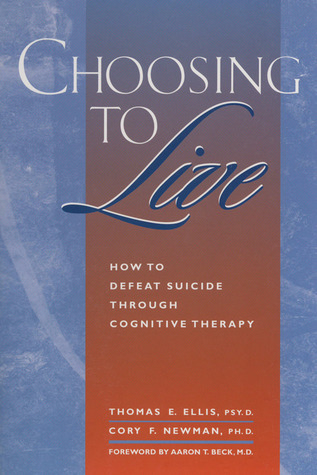 |
Choosing to Live How to defeat suicide through cognitive therapy Thomas Ellis, PsyD and Cory Newman, PhD |
| purchase now | |
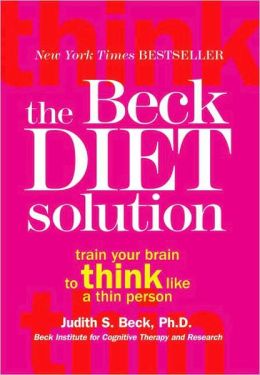
|
The Beck Diet Solution Train Your Brain to Think Like a Thin Person Dr. Judith S. Beck |
I want to whet your appetite for this fabulous book. Would you like to lose weight? Absolutely! You’d love that slimmer physique you once had. You’d love to look at yourself naked in the mirror (or step on the scale) and be pleased. You’d love to buy smaller size clothes. Your back would feel less achy if you shed some pounds and firmed up some muscles. But you also love your pasta and your heapin’ helpins’ of meatloaf and mashed potatoes and your “death-by-chocolate” cake. You love your comfort foods. How do you even begin to shed some pounds? Dr. Judith Beck’s book may be the recipe you’re looking for. In it you will learn thinking skills that will help you maintain weight loss “for the rest of your life.” She gives you methods (in six-week plan) to identify and counter self-sabotaging thoughts (e.g., I’ll just have this one cookie.) She helps you identify all thepersonal benefits to you of losing weight and gives you a method to keep these benefits, not at the edge of your mind, but center stage. These benefits are your mental fuel to stay on track. You will learn how to give yourself credit for every healthy choice you make, however small. You will also learn to tell difference between hunger, desire and cravings, to form a realistic plan (including exercise), to say “no” to food-pushers, to stay in charge when eating in restaurants, to eliminate emotional eating and to supportively get back on track if you slip up. Dr. Judith Beck helps you strengthen your desire to eat smaller portions, eat less fattening foods, find alternative ways to relax and to feel the pride that comes from knowing you are making yourself look and feel better and younger. I highly recommend her book and her workbook. |
|
| purchase now | |
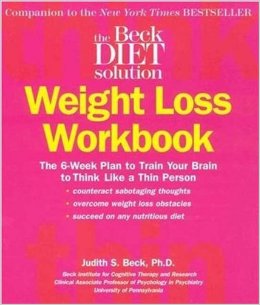 |
Beck Diet Solution Weight Loss Workbook: The 6-week Plan to Train Your Brain to Think Like a Thin Person Dr. Judith S. Beck |
| purchase now | |
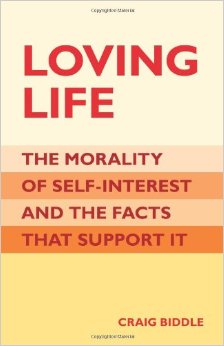 |
Loving Life The Morality of Self-Interet and the Facts That Support It Craig Biddle |
For those who want "to live life to the fullest" and "achieve the greatest happiness possible," this book outlines "the essential means to that end: a proper code of values - a proper morality." |
|
| purchase now | |
.jpg) |
Objectivism: The Philosophy of Ayn Rand Dr. Leonard Peikoff |
Containing an entire chapter on happiness, this is the first comprehensive statement of Ayn Rand's philosophy. Although the text can be understood by the general reader, you will have an easier time if you have first read Ayn Rand's Atlas Shrugged and Introduction to Objectivist Epistemology. |
|
| purchase now | |
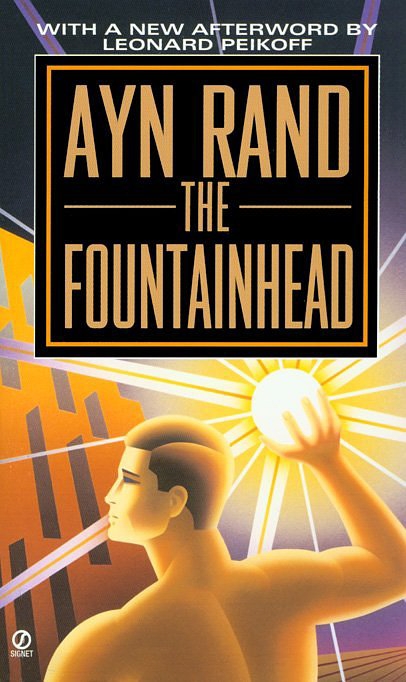 |
The Fountainhead Ayn Rand |
Ranked 14th in a Library of Congress survey of books that made a difference in people's lives, this novel contains incredible psychological insights into the motivations and basic premises that produce a variety of character traits. |
|
| purchase now | |
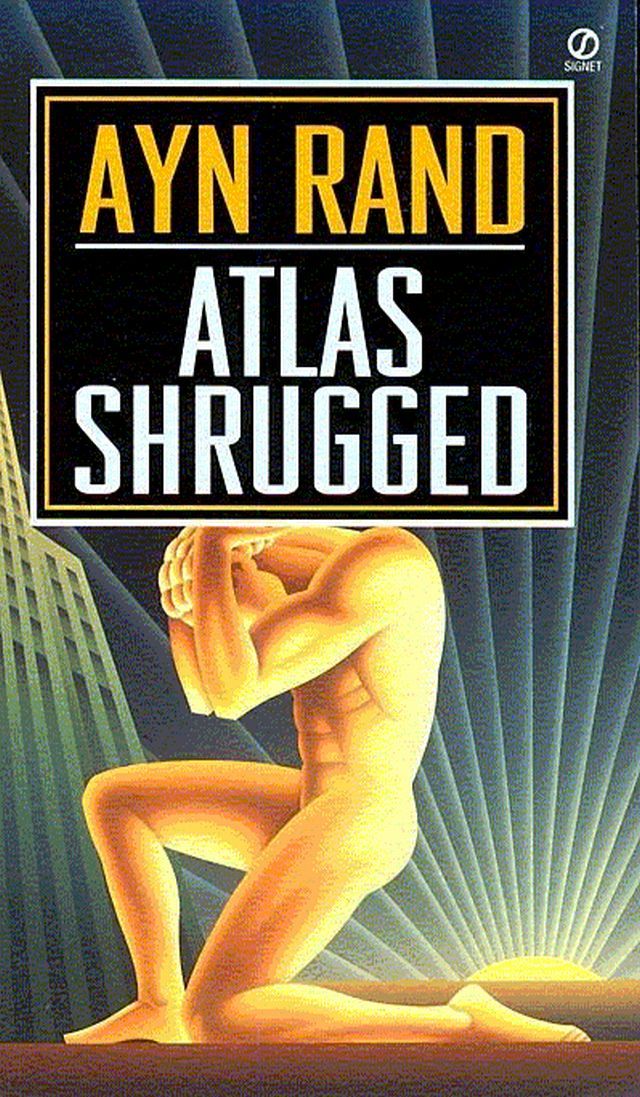 |
Atlas Shrugged Ayn Rand |
Ranked 2nd in a Library of Congress survey of books that made a difference in people's lives, this novel is a mystery story, not about the murder of a man's body, but about the murder of man's spirit. |
|
| purchase now |

 All quotes are from Ellen's and Ed's romance book:
All quotes are from Ellen's and Ed's romance book: